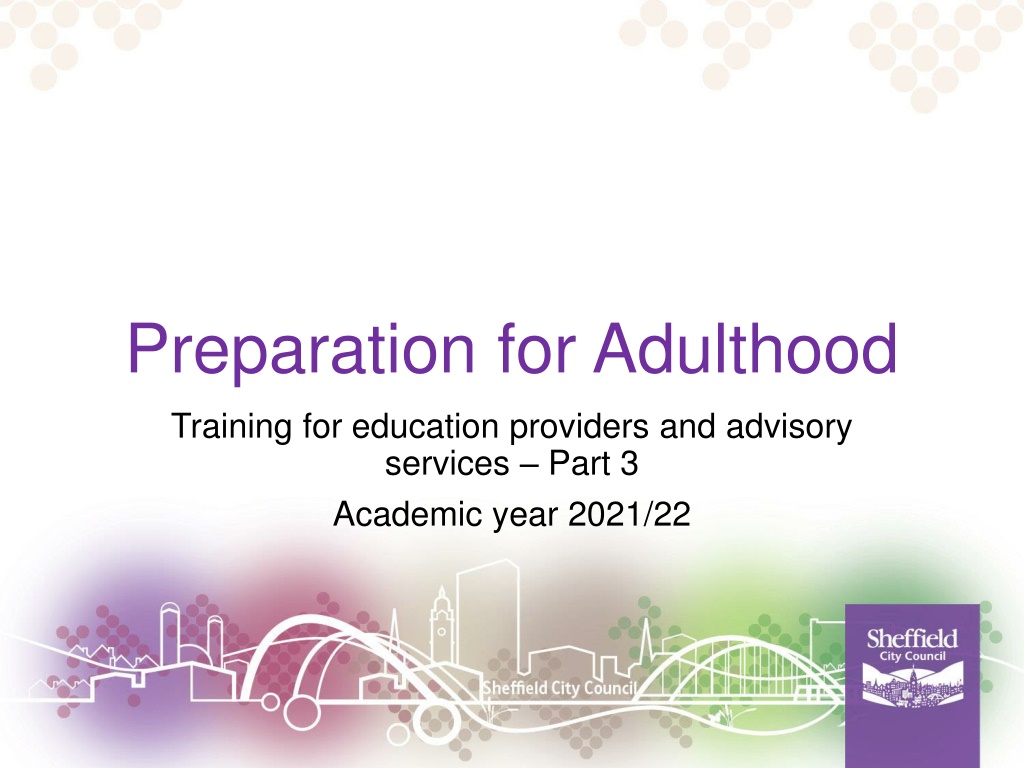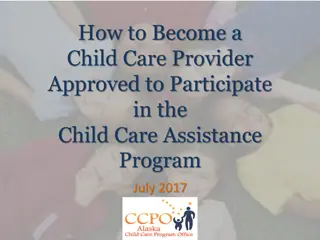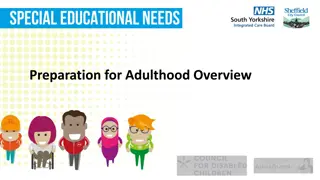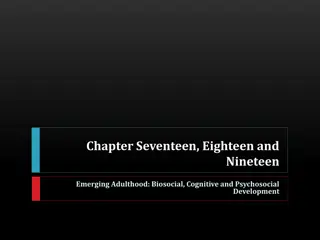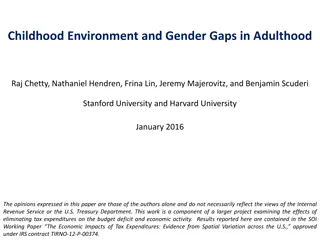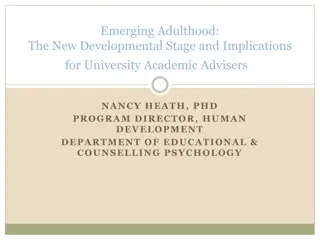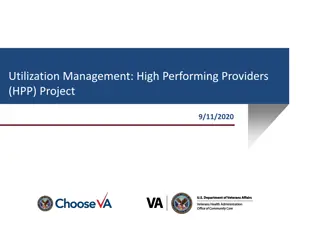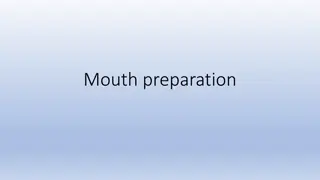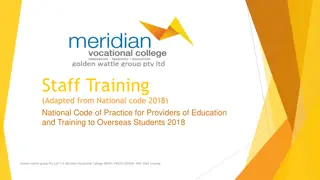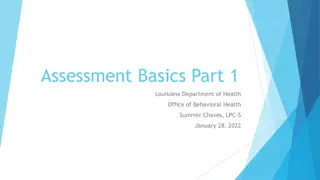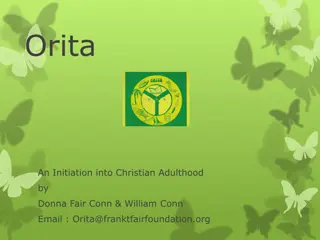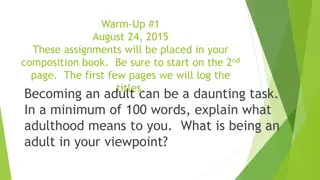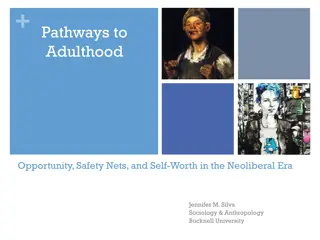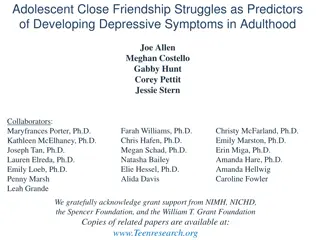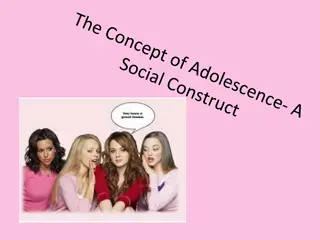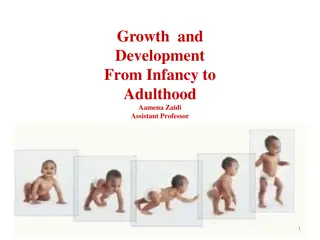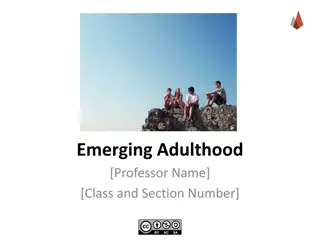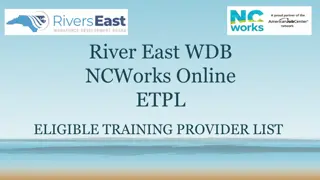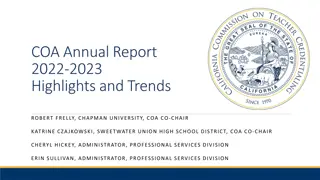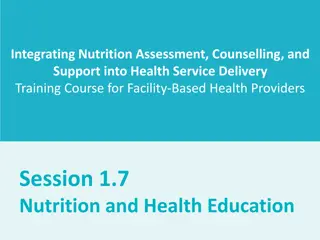Preparation for Adulthood Training for Education Providers 2021/22
Providing guidance on the importance of Preparation for Adulthood (PFA), this training covers aspects such as transition planning from age 14 into adult life, legal responsibilities of schools for children with Education, Health, and Care Plans (EHC), supporting vulnerable individuals, health and care needs, and more. Areas covered include aspirations, outcomes, transition meetings, annual reviews, and developing realistic goals for successful adult life entry. The session aims to equip education providers with the knowledge and tools to effectively support students in their transition to adulthood.
Download Presentation

Please find below an Image/Link to download the presentation.
The content on the website is provided AS IS for your information and personal use only. It may not be sold, licensed, or shared on other websites without obtaining consent from the author. Download presentation by click this link. If you encounter any issues during the download, it is possible that the publisher has removed the file from their server.
E N D
Presentation Transcript
Preparation for Adulthood Training for education providers and advisory services Part 3 Academic year 2021/22
Introduction Training builds on Annual Review training available on learnsheffield/Inclusion Taskforce website Training delivered in 3 parts: 1. Training power point 2. Round table discussion 3. Further training and Q&A
Session aims To explain why Preparation for Adulthood (PFA) is important To consider best practice for supporting transition from age 14 into adult life To explain what should be done each year from age 14 to the point a young person leaves formal full-time education To consider the legal responsibilities and requirements on schools to support PFA for children with EHC Plans To build on training on Annual Reviews of EHC plans To consider how children at SEN Support and other vulnerabilities can be supported To consider how health and care needs should be supported as part of PFA work To answer questions that SENCOs and services have about PFA
Areas covered in this session Aspirations Outcomes Transition meetings / Annual reviews from Year 9 onwards Question & Answer
Developing aspirations Part of transition planning What is important to the young person in adult life? (what matters?) What is important for the young person in adult life? What is needed to get them there? Aspirations may not be realistic but they re still the young person s aspiration our job is to unpick them
Preparation for Adulthood outcomes PfA outcomes don t just start at 14 but outcomes focused on PfA should be embedded from Year 9 onwards this means many outcomes will need to change and build on previous outcomes Outcomes should be co-produced Outcomes need to be important to and important for the young person Outcomes should be SMART Outcomes should focus on all 4 areas of PfA Outcomes should focus on what needs to be achieved to be successful in entering adult life / leaving formal education Steps towards outcomes are essential to help ensure success
Preparation for Adulthood outcomes By the end of Year 12 James will be able to attend Rugby training once a week outside education in order to develop his friendships and independence. Steps towards meeting the outcome: James will know the day and time of Rugby training provision needed to ensure he can tell the time and days of the week and has prompts to be able to find the time James will remember his Rugby kit, including his boots provision needed to help him plan for bringing his kit and reminders in order to do so James will be able to wash his Rugby kit provision needed to ensure he can clean his clothes and boots and bring them back the next week James will be able to get home from training provision needed to support James re travel training and understanding of the use of money for the bus, plus how to contact someone where he needs help James will play Rugby safely and within the rules provision needed to ensure that he is aware of the level of force he can and cannot use as part of training in line with his needs James will be able to get help if he is hurt provision to support him to communicate his needs The provision needed may come from school, the Rugby club, the local authority or the family, however, it is important to break down the outcome to establish what individual parts are needed to help him to achieve the outcome. It should be noted that the skills he would gain from this outcome are transferable to other areas of life.
Preparation for Adulthood outcomes By the end of Year 11 I will be able to get the bus too and from school independently each day in order to ensure that I can access college and my friends Steps towards may then be about travel training support, building confidence, route planning, considering what are the best options for provision
Preparation for Adulthood outcomes By the end of Year 10 I will be able to ask and answer a simple question when asked by an unknown person in order to ensure that I can be more independent and access the workplace Steps towards may then be about work experience, training on communication skills, confidence building, support for social interaction
Preparation for Adulthood outcomes By the age of 18 I will be able to remain safe during short periods without supervision and manage or contribute to my own basic care and living needs. I will become familiar with the concept of employment and will be able to identify areas of work that I may be interested in exploring. All this will ensure that I am able to become independent in life and work. Steps towards may then be about work experience, reduced time with support worker, basic care needs, knowledge of living options
Preparation for Adulthood outcomes By the end of my first year in post-16 education, I will be able to adapt to an unavoidable change in routine and structure, being able to communicate my concerns and seek help to prevent me becoming anxious. Steps towards may then be about using coping strategies both in school and unfamiliar environments in order to prepare for this, work with college for him to identify support structures
EHC Plan / Transition Plan meetings beforehand The process through the year is essential to ensure the meeting can summarise the review Administration invites, time, length, location etc Gathering the young person s voice person centred Parent participation Involving services and future providers Required paperwork
Annual Review meetings from Year 9 Person centred Focus on the future Lots of questions to cover at or in advance around 4 areas of need p5wzjq0j636941293449773408.pdf (preparingforadulthood.org.uk)
Creating a post-16 ready EHC Plan Concern from providers that too school focussed Coherent reviews that identify changes and involve post-16 partners Recognising specifics in provision what is still relevant in post-16? Outcomes that are updated regularly and plan for adult life Transition plan forms part of annual review and should be used to make sure that EHC Plan is post-16 ready
Consultation and commissioning Effective early planning enables the local area to commission provision across Education, Health and Care All plans must be amended to name provision for school leavers by the end of March SCC requires time to consider commissioning requests and provide consultations to post-16 providers Potential post-16 providers should be invited to Year 11 reviews to discuss provision in depth so that good transition can take place Where a young person changes provision in post-16 education, the plan must be amended by end of March Annual reviews should be scheduled to support this process Should be able to see what further study intends to achieve, where it will lead and an end point
Remember its not just about preparing for post- 16 education, it s about preparing for adult life
Question & Answer session Questions from these slides plus part 1 and 2 of training 5 minute breakout first time to consider questions
